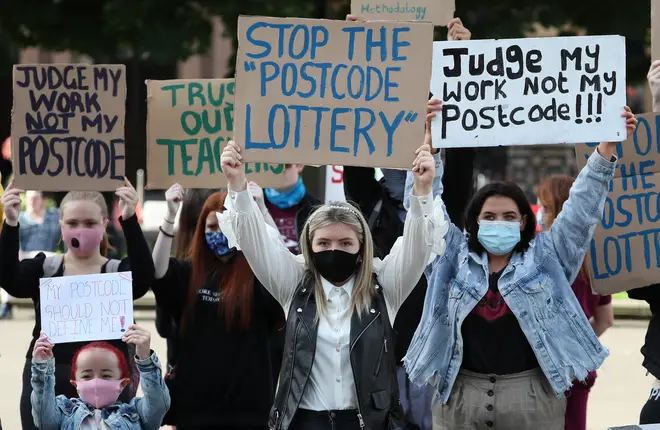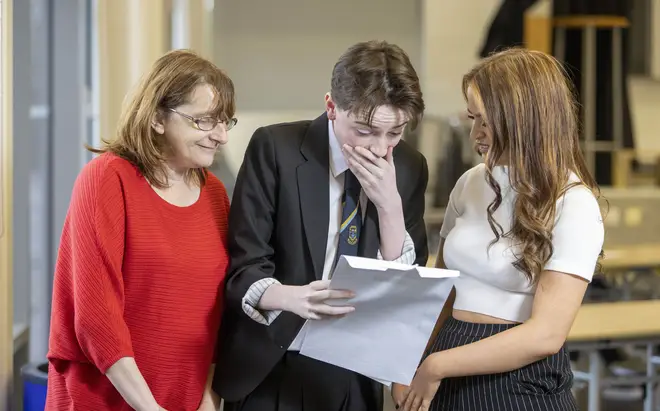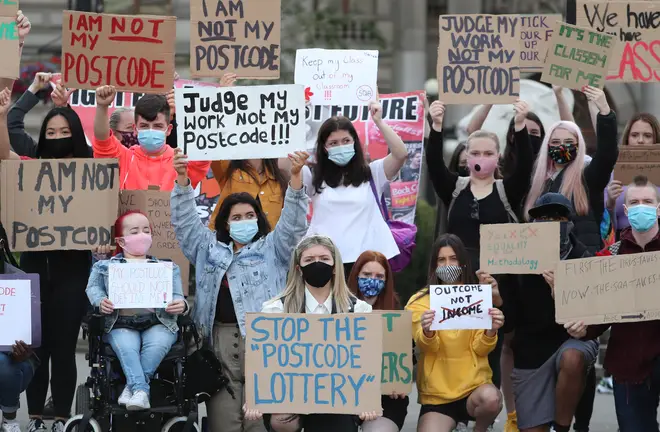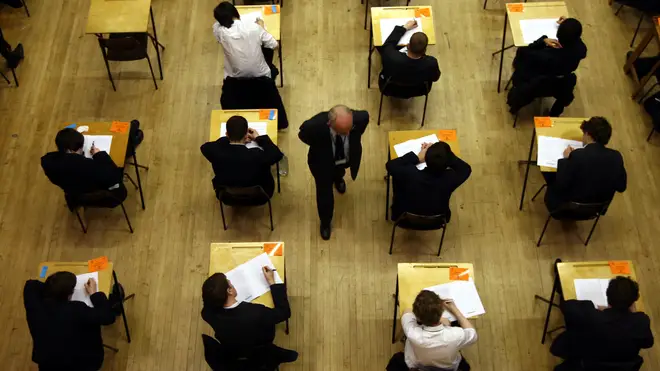
Ali Miraj 12pm - 3pm
7 August 2020, 13:22

Thousands of GCSE and A-level pupils could be able to appeal their results after England’s exam regulator offered greater scope for challenges.
Ofqual said schools and colleges can appeal if they prove previous cohorts are not “representative” of this year’s students, such as the school improving.
It comes amid mounting concern that high-performing pupils could lose out this year. A grades fiasco on Scotland’s results day earlier this week prompted protests and growing calls for an inquiry.
A-level pupils will receive their results next Thursday, and GCSE pupils on 20 August, after exams were cancelled due to coronavirus. Instead, teachers have submitted predicted grades to exam boards, which have moderated them using statistical models to align with previous years.
The new Ofqual guidance, published a week before A-level results day, comes amid concerns that the “narrow” criteria for challenging grades may “exacerbate existing inequalities” and result in legal action against exam boards.
READ MORE: 125,000 appeals loom in Scotland amid fears of GCSE and A-level chaos

Labour's shadow education secretary Kate Green said that the system risked “baking in inequality” if results are based on a “computer algorithm” rather than “merit”.
In Scotland, 125,000 Highers and Nationals grades - a quarter of the total - were lowered from teachers’ estimates by the Scottish Qualifications Authority, the watchdog. Only about 9,000 were upgraded.
Around 100 protested outside SQA’s headquarters in George Square, Glasgow, on Friday morning, while the chief examiner will face MSPs’ scrutiny in Holyrood next week amid demands for an inquiry.
Under the new England guidance, schools and colleges can appeal if they were expecting results this year to “show a very different pattern of grades” to results in previous years because of the ability profile of students this year.

If a school has had a “significant change in leadership or governance” - and it can provide evidence that its previous grades are “not a reliable indicator” of this year's results - it will also be allowed to challenge results.
Pupils cannot appeal themselves - they have to go through their school - but can submit complaints to exam boards about bias or discrimination.
Schools and colleges can appeal to exam boards if they believe they made an error when submitting a grade or an exam board made a mistake, such as an administrative error.
Students in England who are unhappy with their grades will also have the opportunity to take A-level exams in October and GCSE exams in November.

School headteacher explains how his school will be reopening

Education Secretary Gavin Williamson said: “It is vital that students with exceptional circumstances are not held back by the way grades have been calculated.”
Exam boards are bracing for chaos over the next fortnight with a deluge of appeals. One unnamed exam board told the Tes supplement that in high-entry subjects around 60 per cent of grades would be based purely on statistical modelling, as opposed to teachers’ estimates.
Former headteacher Geoff Barton, general secretary of the Association of School and College Leaders, told LBC News it was “very likely” some GCSE and A-level grades will be reduced by examiners.
Experts told LBC News earlier this week that the system risks punishing the “outstanding student” in disadvantaged areas by dragging them in line with their schools’ average.